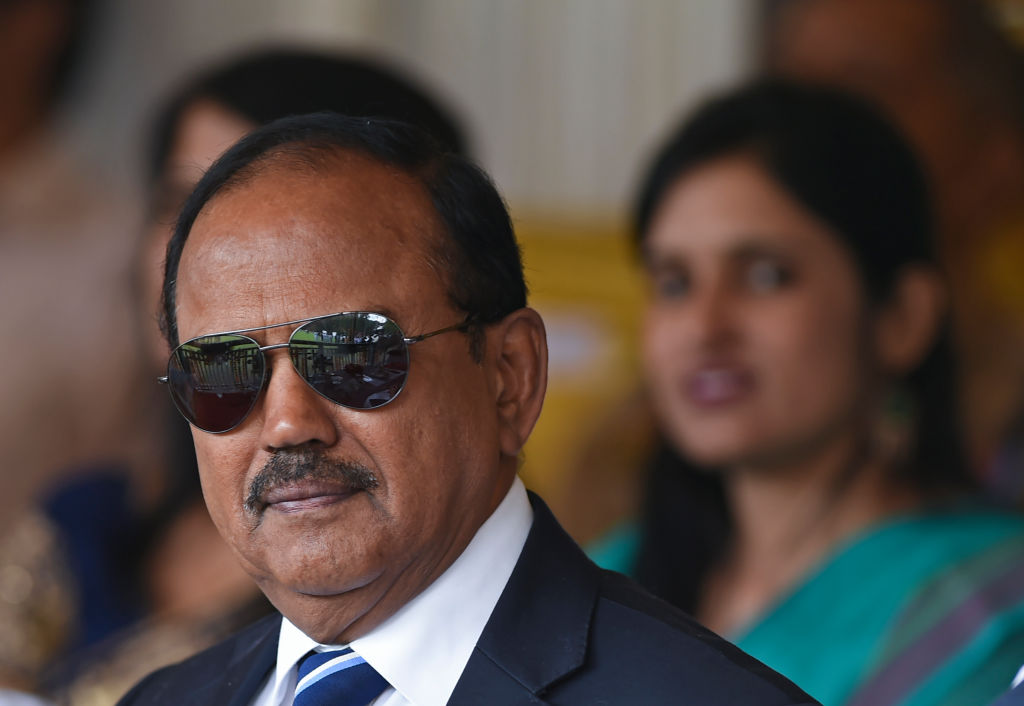- Tuesday, April 23, 2024

By: Shubham Ghosh
The first high-level dialogue on the Initiative for Critical and Emerging Technologies (iCET) between India’s national security advisor (NSA) Ajit Doval and his US counterpart Jake Sullivan can be a “strategic enabler” and has the potential to take the India-US ties to the next level, according to experts.
Doval and Sullivan are scheduled to meet at the White House on Tuesday (31) along with their respective high-powered delegations for the inaugural iCET dialogue.
The iCET was first mentioned in a joint statement after the meeting between Indian prime minister Narendra Modi and US president Joe Biden in Tokyo, Japan, in May last year.
“An initiative like this has the potential to take the US-India relationship to the next level of depth. It can be a strategic enabler. But it will be important to identify, facilitate, track, and deliver on specific priorities,” Tanvi Madan, director of The India Project at the Brookings Institute think-tank told PTI.
Under the iCET, the two countries have identified six areas of cooperation which would include co-development and co-production, that would gradually be expanded to Quad, then to NATO, followed by Europe and the rest of the world.
The objective is to provide cutting edge technologies to the rest of the world which are affordable.
“There is a great deal of build-up and expectation for the iCET meeting. The end goal is to work together to improve our respective abilities to compete with China in creating the technologies that will drive the world in the next century,” Richard M Rossow, Wadhwani Chair in US India Policy Studies at the Center for Strategic and International Studies think tank told PTI.
“Some potential steps like joint controls on related imports and exports can potentially be unleashed soon. Other steps, like joint academic work and research & development could take years to gestate. I hope the programme has a mix of both,” Rossow said.
According to Madan, while the US has traditionally provided technology to those it trusts, India has often trusted those partners that are willing to undertake advanced technology cooperation.
“Thus, even if some of the plans materialise, it could go some way in building broader trust in the India-US relationship and expanding buy-in for the US partnership in India,” she said.
The six areas that have been identified for cooperation as part of iCET are scientific research and development; quantum and artificial intelligence, defence innovation, space, advanced telecom which would include things like 6G and semiconductors. Under the iCET, India is ready to share its core technologies with the US and expects Washington to do the same.
“It’s now largely forgotten, but there’s a history of technology cooperation between India and the US. Consider that collaboration with NASA in the 1960s was crucial for India’s space programme.
“Or that India’s nuclear scientists for several years benefited from their interactions with American counterparts – or that the American government and foundations played a role in enabling technical capacity and talent creation in India through their support for institution building (e.g. IIT Kanpur, AIIMS, Punjab Agricultural University),” Madan said.
The Biden administration recently said India was an important partner of choice for the United States. “India is an important partner of choice for the United States in a number of spaces, and that includes trade cooperation. It, of course, includes security cooperation, technological cooperation as well,” US state department’s deputy spokesperson Vedant Patel told reporters in Washington ahead of Doval’s visit.
(PTI)
![]()